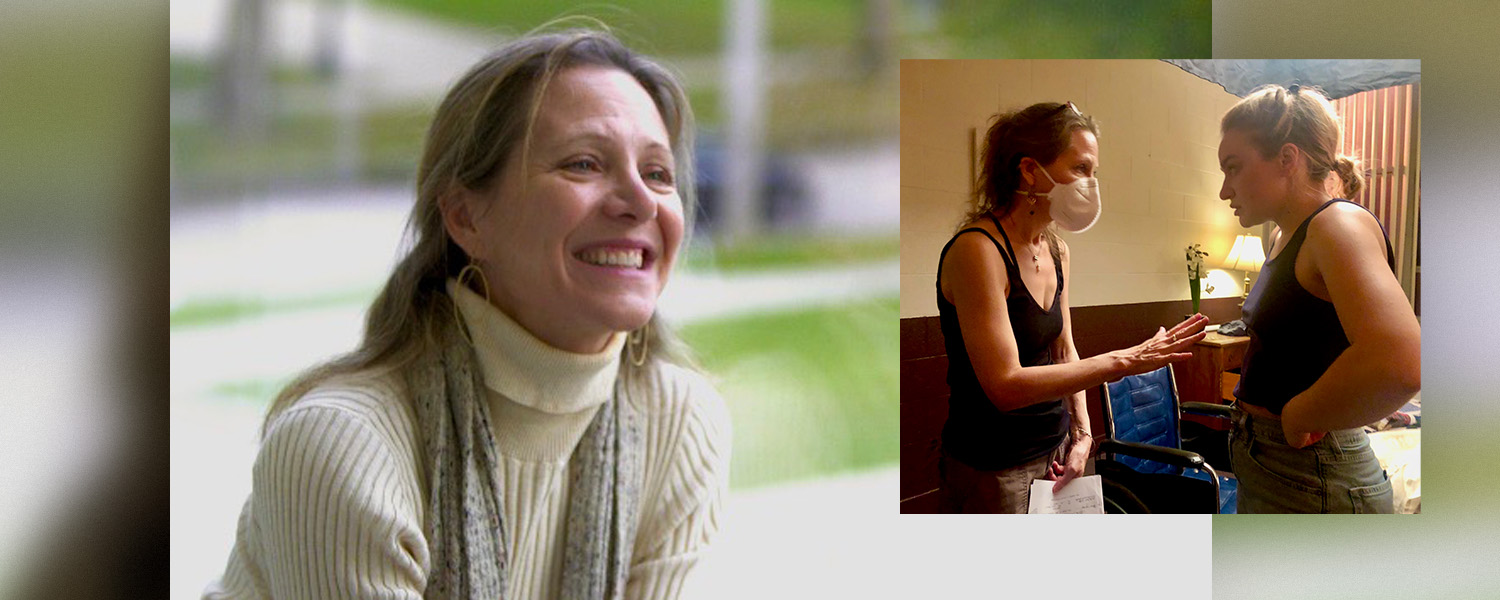In America, conversations about grief and loss are often avoided, and in art, tend to be sugarcoated, or even ācorny.ā
Ā鶹¾«Ń”Assistant Professor and independent filmmaker Dana White is changing that narrative through her work, and was recently recognized by the Ohio Arts Council.
āWe donāt address these really uncomfortably topics,ā White said. āItās OK to not be OK. Itās OK that life leaves us with a lot of bruises. Itās not about erasing them. Itās about trying to live with them, about trying to cope. ā¦ I donāt think American society is comfortable with that.ā
White, who teaches in the School of Media and Journalism's (MDJ) digital media production program, . Individual Excellence Award funding recommendations are made through an anonymous, open panel review process focused the basis merit of artistsā past work. This year, more than 600 applications were received from artists across the state. Seven disciplines were awarded, including Media Arts.
āIt feels really wonderful to be recognized in this community,ā White said. āIt makes me really appreciative of the support Iāve gotten (at Ā鶹¾«Ń”) for my work, and the agenda Iāve been trying to promote ā work that deals with loss, grief and trauma.ā
White submitted her two most recent works: āIn the Orchard,ā a feature film about loss and PTSD that earned Best Feature Film at the 2018 Sonoma International Film Festival, and āTurning Blue,ā a short film about a daughter caring for her dying mother, that premiered at the Cleveland International Film Fest in 2021. White was the writer, co-director (alongside her husband, Ā鶹¾«Ń”Lecturer Christopher Knoblock, who also teaches in MDJ) and an actress for both of the films.
āTurning Blueā is based on Whiteās own story of losing her mother just days after she moved from Los Angeles to start her job at Ā鶹¾«Ń” in 2018. She was particularly touched that one of the jurors praised the very intentional use of the camera in this piece.
The 14-minute short film was shot in a continuous take, White explained, and āthe camera work is meant to facilitate the idea that death is controlling.ā The camera takes over as death takes over, mimicking the way White recalls losing control as her mother ā and best friend ā drew closer to death.
āIt was really important in terms of the way we shot the film, to have the camera be a character,ā White said.
In Kent Stateās School of Media and Journalism, White teaches Scriptwriting for Video and Film and Story for Picture, among other classes. Her passion for tackling difficult subjects extends into the classroom through the way she empowers students to tell stories they are passionate about, but sometimes afraid of.
āI know itās hard to tell personal stories,ā she says. āI always write into things Iām really afraid of. ā¦ In terms of my students, I encourage them to take the difficult road.ā
White, who spent 20 years in Los Angeles before coming to Ā鶹¾«Ń”to teach, says Ohio is home to a vibrant community of artists.
āItās an exciting place to be making things. Iām grateful to the people at Ā鶹¾«Ń”who have helped me and who have given me opportunities,ā she said. The Ohio Arts Council Individual Excellence Award is a great honor. Iām moved by their recognition of my work.ā

